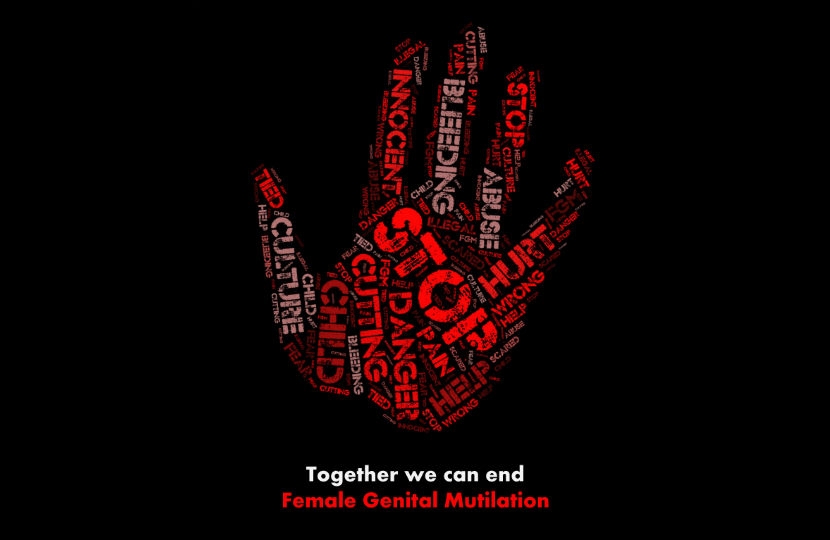
As the Summer holidays approach, Thames Valley Police and the Police and Crime Commissioner (PCC) for the Thames Valley are raising awareness of Female Genital Mutilation (FGM) by contacting professionals who work closely children and young people.
The PCC, Anthony Stansfeld, and Assistant Chief Constable Jason Hogg have written to schools and public health organisations informing them of potential warning signs that a girl may be at risk of FGM or has experienced FGM, asking them to remain vigilant to these indicators.
FGM is child abuse and is a crime in the UK. It involves the partial or total removal of the external female genitalia, or other damage to the genital organs, for supposed cultural, religious or non-medical reasons. This practice inflicts severe physical and psychological damage to the child which can last a lifetime.
Around 66,000 girls and women living in England and Wales have undergone FGM, with a further estimated 20,000 girls under the age of 15 at risk. It is routinely practiced in some African and Middle Eastern countries - in some places up to 98 per cent of young women have undergone the FGM procedure.
Whilst it is thought the crime predominantly takes place outside the UK, it is believed to be vastly under-reported. The summer holidays are a particularly high risk time for potential victims of this practice when girls may be taken out of the country for the procedure.
Anthony Stansfeld, Police and Crime Commissioner for the Thames Valley said “It is vital that we continue to raise awareness of FGM and the communities it affects. All organisations which come into contact with children such as health and social care professionals and teachers, have a responsibility to recognise the signs of FGM to prevent young girls becoming victims, as well as report known cases in those under 18, to the police”.
Jason Hogg, Assistant Chief Constable at Thames Valley Police, said “FGM is a grave violation of the human rights of girls and women. It is often a hidden crime and one where we need the support of the local community to help us to tackle and eradicate it. In the year ahead we will be seeking to raise awareness of hidden harm and the crimes that come within this area of work which includes FGM.”
The Police and Crime Commissioner has commissioned the charity SAFE! to provide support to young victims of crime aged 8 -17 across the Thames Valley. Young victims of FGM can receive practical and emotional support through SAFE! on 0800 133 7938. More information can be found at www.victims-first.org.uk/crimes/young-victims-service/
What professionals should do if FGM is suspected:
- Call the police on 999 if you believe a child is in immediate risk of harm or 101 if it is a non-emergency call.
- Contact the NSPCCs FGM helpline on 0800 028 3550.
- Read the UK Government multi-agency practice guidelines on tackling and preventing female genital mutilation - https://www.gov.uk/government/publications/multi-agency-statutory-guidance-on-female-genital-mutilation.
- Look at the mandatory reporting guidelines document - https://www.gov.uk/government/publications/mandatory-reporting-of-female-genital-mutilation-procedural-information.
- Raise awareness with other professionals by sharing this information and our FGM leaflets located on the Thames Valley Police website.
- Find out more information by looking on the NSPCC, UNICEF and NHS websites.
Indicators that a girl may be at risk of FGM;
- Her parents originate from an FGM-practicing country.
- She is out the country for a prolonged period of time.
- She is taking a long holiday to her country of origin or another country where the practice is prevalent.
- She refers to a ‘special procedure’ or ‘special occasion’ or ‘becoming a woman’.
- She and her family have a low level of integration into the local community.
Indicators that a girl may have experienced FGM;
- She is in pain when walking or sitting or has restricted movement.
- She has repeated or prolonged absence from school.
- She spends a lot of time in the bathroom or toilet.
- She has bladder or menstrual problems.
- She is reluctant to undergo medical examinations.
- She does not want to participate in Physical Education.
- Her behaviour / demeanour has changed.
